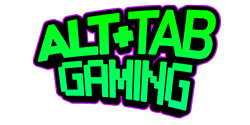Contrast, developed by Compulsion Games and first released in 2013, may not be a household name like Portal or Limbo, but it’s a game that deserves a place in every puzzle platformer fan’s library. Set in a dreamy, 1920s-inspired world filled with jazz, mystery, and wonder, Contrast offers players a truly unique experience that seamlessly combines puzzle-solving with an enchanting narrative. Here’s why Contrast is a hidden gem you should definitely try.
1. A Striking Visual Style with Noir Flair

One of the first things that will capture your attention in Contrast is its distinct aesthetic. The game is steeped in a stylized 1920s, jazz-infused world that feels part circus, part film noir. The visuals are a perfect match for the game’s shadow-based puzzles, creating an atmosphere that is both haunting and magical.
The world is dark and ethereal, with buildings and characters that are only partially real. In this liminal space, the protagonist, Dawn, moves freely between a 3D environment and a 2D shadow world, using light and shadow in ways that make the game’s art style come to life. The clever use of shadows and light is more than just a mechanic—it’s the essence of the game’s entire visual and storytelling approach.
2. An Intriguing Mechanic: Switching Between 3D and 2D Worlds

What truly sets Contrast apart from other puzzle platformers is its unique gameplay mechanic that lets you transition between a 3D world and a 2D shadow world. Players control Dawn, the invisible friend of a young girl named Didi, as they navigate through a world where shadows create platforms and walls. You’ll need to manipulate sources of light, shifting objects to cast shadows in just the right places to create paths, platforms, and solutions to puzzles.
This mechanic feels fresh and innovative, forcing you to think about puzzles from both a literal and figurative new perspective. It’s a blend of creativity and spatial reasoning that’s rarely seen in platformers, making each level feel like a puzzle box where you can physically shape the shadows that form your solutions.
3. A Heartfelt Story in a Darkly Beautiful World

Unlike many puzzle platformers, which focus primarily on gameplay, Contrast weaves a touching narrative into its puzzle-solving framework. You play as Dawn, the imaginary friend of a young girl named Didi, who has a family struggling with issues of trust, betrayal, and reconciliation. Didi’s father is a struggling performer who is trying to turn his life around, while her mother, a singer, wrestles with feelings of abandonment and doubt. Through Didi’s eyes, players experience a story that feels both personal and magical.
The story unfolds as Didi tries to bring her family together, and Dawn supports her journey by solving puzzles and discovering new parts of the city. While the themes of family and imagination are universal, the game’s setting makes it feel like a dream sequence—a glimpse into Didi’s perception of her troubled world.
4. Unique and Challenging Puzzles that Play with Perception

In Contrast, puzzles are more than just obstacles; they’re invitations to think in abstract, sometimes surreal ways. The game’s shadow mechanics create a fascinating challenge, requiring players to manipulate light sources and shadows to navigate. Often, you’ll need to shift objects in the 3D world to create the exact shadows you need to climb, cross gaps, or unlock new areas.
These puzzles do more than test your logic; they encourage you to engage with the environment as both a solid and a silhouette, exploring how space and perception work together. The “aha!” moments that come from solving each puzzle are incredibly rewarding and drive you to keep exploring each scene for new interactive possibilities.
5. An Immersive Soundtrack That Sets the Mood

Music in Contrast isn’t just an afterthought—it’s a vital part of the experience. The jazz-infused soundtrack adds layers to the game’s atmosphere, giving each location and each moment a sense of time and place. The music draws players deeper into the story, enhancing the emotional moments and heightening the tension during challenging puzzles. It’s the perfect background to a story that unfolds in a world of shadows, jazz clubs, and vintage aesthetics.
6. A Short, Memorable Experience Perfect for a Weekend Playthrough
One of Contrast’s unique qualities is its brevity. The game can be completed in about 4–6 hours, making it a manageable and focused experience. This short playtime allows for a tightly-woven story without unnecessary filler. If you’re a fan of indie games that pack a punch in a short amount of time, Contrast is a perfect choice for a weekend adventure that leaves a lasting impression.
7. A Game That Went Under the Radar, But Deserves the Spotlight
Despite its originality and charm, Contrast didn’t achieve the widespread recognition of other indie puzzle games. Released in the same year as big indie hits like The Stanley Parable and Papers Please, it was somewhat overshadowed. But years later, Contrast still holds up as an innovative, visually stunning, and emotionally rich experience. Its blend of storytelling, mechanics, and style makes it a title that stands out, especially for players who love games that challenge both their minds and their hearts.
In Conclusion: Why Contrast Deserves a Place in Your Game Library

If you’re a fan of puzzle platformers and enjoy games that experiment with style, narrative, and mechanics, Contrast is a game you shouldn’t miss. Its shadow-and-light mechanic is a rare and delightful twist on traditional platforming, and the story of a girl trying to mend her family’s broken bonds is both touching and thought-provoking. While Contrast might be a hidden gem, its unique blend of art and gameplay is likely to leave an impression you won’t soon forget.
So if you’re looking to experience a game that’s as much about the journey as it is about solving puzzles, turn the lights down, step into the shadows, and dive into Contrast. You might just find it’s one of the most memorable games you’ve played.

